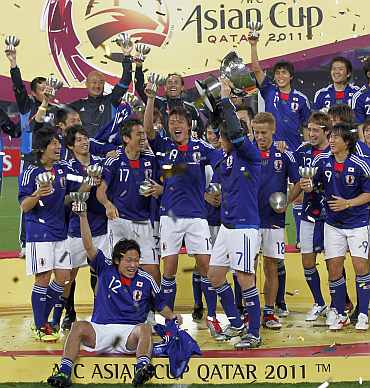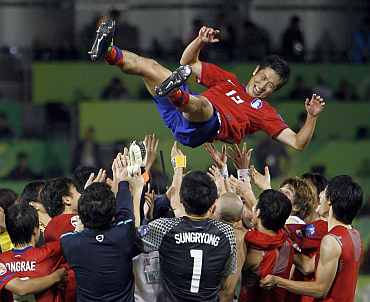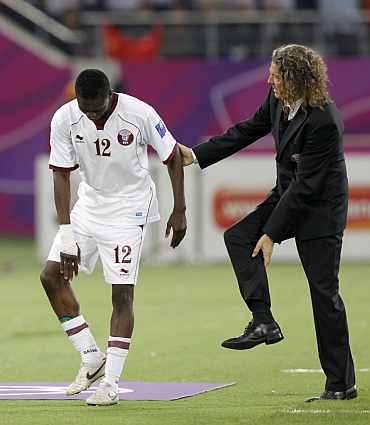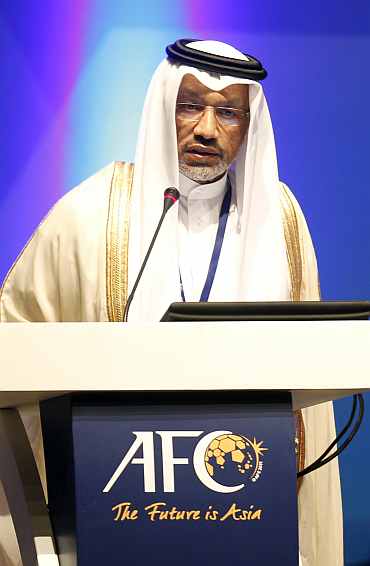Photographs: Reuters
Japan's record fourth Asian Cup title demonstrated that the east of the continent remains the region's dominant force on the field even if the power in the boardroom has switched to the west.
Japan, Australia and South Korea claimed the top three positions in Qatar and their level of soccer was head and shoulders above their west Asian rivals and in particular Middle Eastern opponents.
Japan, with just one member of their 23-man squad over 30, and South Korea produced a number of high-tempo, attacking displays that left their opponents in a daze and their youthful sides show the future is bright.
In contrast, it was the first time that a side from the Middle East had failed to reach the semi-finals of the tournament since the knockout stages were introduced in 1972.
A generation of good players playing in Europe
Image: South Korea's players throw Lee Young-pyo in the air after winning their 2011 Asian Cup third place playoff match against UzbekistanThree-times winners Iran looked like the most likely Middle Eastern side to win the title but Afshin Ghotbi's side eventually succumbed in extra time of their quarter-final against a dominant South Korea.
Ghotbi, who has stepped down to take charge of J-League club Shimizu S-Pulse, thinks organisation is to blame.
"If you look at South Korea and Japan they have good models and they are showing it with a generation of good players playing in Europe.
"We need to learn from them and invest long term. If you want to consistently produce you need to develop long term plans.
"There is a lot of growing up to do in this region starting with infrastructure, education, professional clubs, youth players," Ghotbi said.
'It's a mental thing, not about morale'
Image: Qatar's coach Bruno Metsu speaks to his player Yusef Ahmed during a matchThe failings of the Middle Eastern sides comes at a time when the region is still celebrating Qatar being awarded the right to host the World Cup in 2022.
Earlier this month, Jordan's Prince Ali Bin Al Hussein ousted long-serving South Korea Chung Mong-joon to claim the role of FIFA vice-president and leave East Asia without a representative on the decision-making board after Japan's Junji Ogura retired.
Saudi Arabia, Syria, Bahrain, United Arab Emirates and Kuwait, the Gulf Cup champions, exited in the group stage and Qatar coach Bruno Metsu believes the teams were forced to play too many games after the conclusion of the Gulf Cup in December.
"It's difficult to play two big tournaments in two months and I think that you have to ask, are the players capable of withstanding the mental pressure of playing in two competitions back to back?" Metsu asked after his team were knocked out by Japan in the quarter-finals 3-2.
"It's a mental thing, not about morale. It's difficult for young players to come back and play in two big tournaments," he added.
'I think east today are enjoying the benefit of the professionalism'
Image: AFC President Mohamed Bin Hammam speaks during the 24th AFC congress in DohaQatari AFC president Mohamed Bin Hammam believes the sides in the west lack the experience of their compatriots.
"I think east today and in particularly Japan, (South) Korea, Australia are enjoying the benefit of the professionalism.
"The players from these countries are more mature on the field. They can handle the matches and decide what to do unlike their other colleagues from the west, they panic if they are losing," he said.






Comment
article